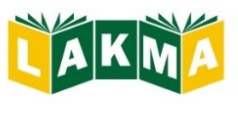Kristina Urbonienė
English language teacher at Šiauliai „Saulėtekio“ Gymnasium, LAKMA Board member
In February 2014, ten Lithuanian teachers participated in a short-term internship in Germany organised by the Education Development Centre. Our aim was to get acquainted with the Bavarian education system and the mission of teacher associations in the region.
On the first day of the visit we were kindly met by Dr. Harald Fichtner, the mayor of Hof, who introduced to us the town, its people and attractions. We experienced Bavarian hospitality and authentic cuisine as we were invited to taste one of traditional Bavarian dishes – pork schnitzel with a potato dumpling and sauerkraut.
During the internship week we visited Schiller Gymnasium, Sophien Primary School, Munster Secondary School, Professional Academy, Youth Creative Workshop and Youth Centre “Q“. The staff of these institutions introduced to us their main activities for children, the teaching and learning conditions and the projects they participate in.
Some facts. The education system varies throughout Germany and each state (Land) decides on its own policies. Children attend Grundschule (primary school) from 6 to 10. Then, depending on the grades achieved, children can continue studies in one of the three institutions – Gymnasium, Realschulle or Mittelschulle (secondary school). The Gymnasium is designed to prepare pupils for university education and ends with the final examination Abitur, after grade 12 or 13. The Realschule and Mittelschule have a broader range of emphasis for intermediate pupils and finish with the final examination after grade 10. The Hauptschule prepares pupils for vocational education. The best mark in Bavaria is 1, the worst – 6.
Inclusive education. Schools in Bavaria use different approaches to providing special education services to students. Our team had a chance to get a closer look at Sophien Primary School where Inclusion Approach is applied and where students with special needs spend all or most of the school day with students who do not have special needs. As inclusion can require substantial modification of the general curriculum, most schools use it only for selected students with mild to moderate special needs, which is accepted as a best practice. Specialized services may be provided inside or outside the regular classroom, depending on the type of service. Students may occasionally leave the regular classroom to attend smaller, more intensive instructional sessions in a resource room or to receive other services that might require specialized equipment or might be disruptive to the rest of the class. A very serious problem and also a challenge to teachers are children from socially neglected or immigrant families.
Teacher associations. The headmaster of Sophien School Henrik Schödel is at the same time the leader of the regional teacher association with 55 000 members. He is a real enthusiast who cares not only about the students and their achievements, but also about the teachers, their professional development, psychological state and salary. Mr. Henrik Schödel gave a presentation on the system of teacher associations in Bavaria, introduced to us their activities and provided us with the information on recent research in the field of brain work as well as the effectiveness of certain approaches to working with children who require special care and attention.
The association is led by the President and two Vice-Presidents and has paid full-time staff: consultants, research workers, lawyers, editors and journalists. The association works in different fields: they create curriculum/study plans, develop concepts and then introduce their products to the Ministry of Education. The association has its Institute of Pedagogue Health which aims to ensure the physical and mental well-being of the teachers.
The association is proud of its achievements: thanks to this association, the number of students in the classroom has decreased to 22, the number of weekly working hours has changed from 30 to 28. One of the biggest successes of this association is the 13th salary, which is paid only in the state of Bavaria.
The Lithuanian teachers who participated in this internship have improved their intercultural, linguistic, social and cooperative competences. The experience we have gained will help us apply the ideas in our everyday work. It is said that the extent of student growth depends on how much their teacher has broadened his/her cultural and intellectual horizons. I believe that our students will benefit from this internship as their teachers have experienced and learned so much.



